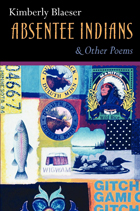
Absentee Indians and Other Poems evokes personal yet universal experiences of the places that Native Americans call home, their family and national histories, and the emotional forces that help forge Native American identities. These are poems of exile, loss, and the celebration of that which remains. Anchored in the physical landscape, Blaeser’s poetry finds the sacred in those ordinary actions that bind a community together. As Blaeser turns to the mysterious passage from sleeping to wakefulness, or from nature to spirit, she reveals not merely the movement from one age or place to another, but the movement from experience to vision.
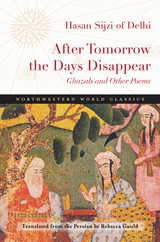
Hasan Sijzi, also known as Amir Hasan Sijzi Dehlavi, is considered the originator of the Indo-Persian ghazal, a poetic form that endures to this day—from the legacy of Hasan’s poetic descendent, Hafez, to contemporary Anglophone poets such as John Hollander, Maxine Kumin, Agha Shahid Ali, and W. S. Merwin.
As with other Persian poets, Hasan worked within a highly regulated set of poetic conventions that brought into relief the interpenetration of apparent opposites—metaphysical and material, mysterious and quotidian, death and desire, sacred and profane, fleeting time and eternity. Within these strictures, he crafted a poetics that blended Sufi Islam with non-Muslim Indic traditions. Of the Persian poets practiced the ghazal, Hafez and Rumi are best known to Western readers, but their verse represents only a small fraction of a rich tradition. This collection reveals the geographical range of the literature while introducing an Indian voice that will find a place on reader’s bookshelves alongside better known Iranian names.
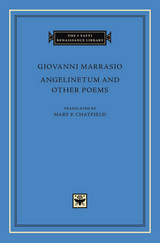
Giovanni Marrasio (d. 1452), a humanist poet from Noto in Sicily, spent the major part of his poetic career in Siena and Ferrara before returning to Palermo in the role of a medical doctor serving the University of Palermo. In Siena, Naples, and Palermo he hovered on the edge of the courts of the Este and of Alfonso “the Magnanimous” of Aragon without ever winning the title of court poet he coveted.
Marrasio was esteemed in the Renaissance as the first to revive the ancient Latin elegy, and his Angelinetum, or “Angelina’s Garden,” as well as his later poems (Carmina Varia) explore that genre in all its variety, from love poetry, to a description of a court masque, to political panegyric, to poetic exchanges with famous humanists of the day such as Leonardo Bruni, Maffeo Vegio, Antonio Panormita, and Enea Silvio Piccolomini. This volume contains the first translation of Marrasio’s works into any modern language.

Seductive verse.
Ovid (Publius Ovidius Naso, 43 BC–AD 17), born at Sulmo, studied rhetoric and law at Rome. Later he did considerable public service there, and otherwise devoted himself to poetry and to society. Famous at first, he offended the emperor Augustus by his Ars amatoria, and was banished because of this work and some other reason unknown to us, and dwelt in the cold and primitive town of Tomis on the Black Sea. He continued writing poetry, a kindly man, leading a temperate life. He died in exile.
Ovid’s main surviving works are the Metamorphoses, a source of inspiration to artists and poets including Chaucer and Shakespeare; the Fasti, a poetic treatment of the Roman year of which Ovid finished only half; the Amores, love poems; the Ars amatoria, not moral but clever and in parts beautiful; Heroides, fictitious love letters by legendary women to absent husbands; and the dismal works written in exile: the Tristia, appeals to persons including his wife and also the emperor; and similar Epistulae ex Ponto. Poetry came naturally to Ovid, who at his best is lively, graphic and lucid.
The Loeb Classical Library edition of Ovid is in six volumes.
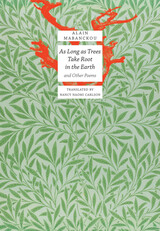
These compelling poems by novelist and essayist Alain Mabanckou conjure nostalgia for an African childhood where the fauna, flora, sounds, and smells evoke snapshots of a life forever gone. Mabanckou’s poetry is frank and forthright, urging his compatriots to no longer be held hostage by the civil wars and political upheavals that have ravaged their country and to embrace a new era of self-determination where the village roosters can sing again.
These music-infused texts, beautifully translated by Nancy Naomi Carlson and supported by a grant from the National Endowment for the Arts, appear together in English for the first time. In these pages, Mabanckou pays tribute to his beloved mother, as well as to the regenerative power of nature, and especially of trees, whose roots are a metaphor for the poet’s roots, anchored in the red earth of his birthplace. Mabanckou’s yearning for the land of his ancestors is even more poignant because he has been declared persona non grata in his homeland, now called Congo-Brazzaville, due to his biting criticism of the country’s regime. Despite these barriers, his poetry exudes hope that nature’s resilience will lead humankind on the path to redemption and reconciliation.

Published by the Center for Literary Publishing at Colorado State University

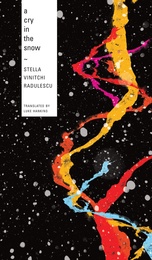
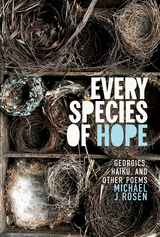
At the center of this book is a suite of poems inspired by Virgil’s Georgics, or “poems of pastoral instruction.” In Rosen’s case, he is more the student than the teacher. Likewise, five short sections of haiku continue his meditation on—or mediation of—art and nature. As he has written, “Haiku provides a brief and mirror-like calm in the choppy waters—in the undertow—of current events: a stillness in time where more than our singular lives can be reflected.”
Illustrated with two dozen pages from the author’s own journal, Every Species of Hope is the consummation of decades of observation, humility, and awe.
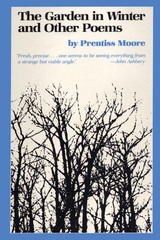

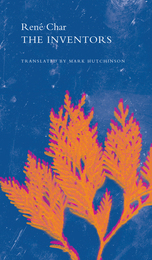
The Inventors includes a brief introduction to Char’s life and work, as well as a series of notes on the backstories of the works, which explain allusions that may not be immediately familiar to the English-speaking reader. These new translations stay true to the originals, while at the same time conveying much of the music and beauty of the French poems.
Praise for René Char
“Char, I believe, is a poet who will tower over twentieth-century French poetry.”—George Steiner
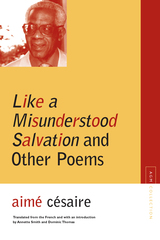
Annette Smith and Dominic Thomas’s new translations of Aimé Césaire’s Like a Misunderstood Salvation and Solar Throat Slashed (poems deleted) expose to a new audience a pivotal figure in twentieth-century French literature. This collection presents the early and last stages of a poet’s course, encapsulating in one volume Césaire’s entire literary career and creative evolution as perhaps the only French poet writing simultaneously at the crossroads of the avant-garde and classical movements.
This volume’s inclusion of previously deleted poems from Solar Throat Slashed is politically important; despite their initial exclusion from a French republication of Soleil Cou Coupé in 1961, these thirty-one poems are crucial to understanding Césaire’s legacy and remain of tremendous pertinence today as they provide helpful ways of thinking about and contextualizing discussions on race, identity, global identities, and the links between “black consciousness” and “social consciousness.”

The poems of this collection explore such everyday dualities—how the human need for attachment is as much a source of pain as of vitality and how our longing for transcendence often leads to sinister complicities. The title poem tells the conflicted and devastating story of the poet’s friendship with the now-disgraced Bishop of Phoenix, Arizona, interweaving fragments of his parents’ funerals, which the Bishop concelebrated, with memories of his childhood spiritual leanings and how they were disrupted by a pedophilic priest the Bishop failed to protect him from.
This meditation on spiritual life, physical death, and betrayal is joined by an array of poised, short lyrics and expansive prose poems exploring how the terror and unpredictability of our era intrudes on our most intimate moments. Whether Michael Collier is writing about an airline disaster, Huey Newton’s trial, Thomas Jefferson’s bees, a piano in the woods, or his own fraught friendship with the disgraced Catholic Bishop, his syntactic verve, scrupulously observed detail, and flawless ear bring the felt—and sometimes frightening—dimensions of the mundane to life. Throughout, this collection pursues a quiet but ferocious need to get to the bottom of things.

Supported by the Institute for Scholarship in the Liberal Arts, Collegeof Arts and Letters, University of Notre Dame
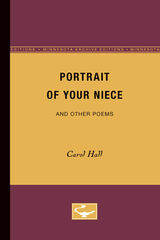
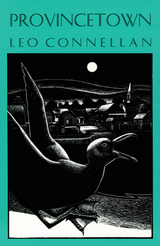
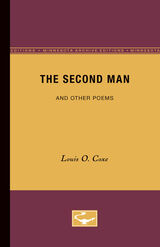

The finest ghazals of Mir Taqi Mir, the most accomplished of Urdu poets.
Mir Muhammad Taqi Mir (1723–1810) is widely regarded as the most accomplished poet in the Urdu language. His massive output—six divans—was produced in Delhi and Lucknow during the high tide of Urdu literary culture.
Selected Ghazals and Other Poems offers a comprehensive collection of Mir’s finest ghazals, extended lyrics composed of couplets, and of his masnavis, narrative works of a romantic or didactic character. The ghazals celebrate earthly and mystical love through subtle wordplay, vivid descriptions of the beloved, and a powerful individual voice. The sometimes satirical masnavis highlight everyday subjects: domestic pets, monsoon rains, the rigors of travel. They also include two astonishing love stories: one about young men whose relationship is shattered when one marries; the other about a queen, her peacock lover, and the jealous king who seeks to drive them apart.
The Urdu text, presented here in the Nastaliq script, accompanies new translations of Mir’s poems, some appearing in English for the first time.
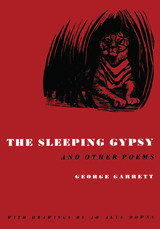
The Sleeping Gypsy is an important collection of poems by an American writer who was only twenty-nine when awarded the coveted Prix de Rome in 1958. When George Garrett’s first collected verse, The Reverend Ghost and Other Poems, appeared in Scribner’s Poets of Today: IV, critics hailed the emergence of an authentic new talent of great promise. Babette Deutsch, writing in the New York Herald Tribune, said, “His poems are short, highly charged, and also, as he intended, clear. They move rapidly, without waste, exhibiting a lively skill and vigor in action.… His sensitive perceptivity makes his thoughtful insights more memorable.” Louise Bogan, writing in the New Yorker, said, “It is good to come upon [in Garrett’s work] an ordered brilliance and effects, long neglected, that link us to the ancient tradition of English ‘song.’”
Readers will find in The Sleeping Gypsy all of the qualities that distinguished Garrett’s earlier collection of verse—the pointed, incisive writing, the abhorrence of “pretty” poetic words, the harsh impact of language that is, at the same time, strangely musical. Many will feel that, in this later work, these qualities have been enhanced and that Garrett’s advancing maturity indicates strongly that his early promise will be richly fulfilled.
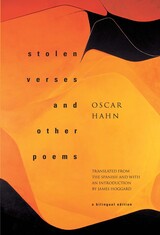

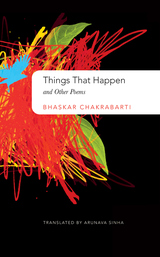
In this first-ever comprehensive translation of Chakrabarti’s work, award-winning translator Arunava Sinha masterfully articulates that clarity of vision, retaining the unique cadence and idioms of the Bengali language. Presenting verses and prose poems from all of Chakrabarti’s life—from his first volume, When Will Winter Come, published in 1971, to his last, The Language of Giraffes, published just before his death in 2005, and collecting several unpublished works as well—Things That Happen and Other Poems introduces the world to a brilliant and universal poetic voice of urban life.
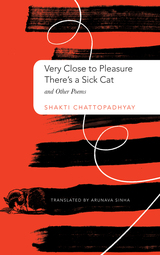
This book presents more than one hundred of Chattopadhyay’s poems, introducing an international audience to one of the most prominent and important Bengali poets of the twentieth century.
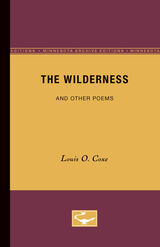
READERS
Browse our collection.
PUBLISHERS
See BiblioVault's publisher services.
STUDENT SERVICES
Files for college accessibility offices.
UChicago Accessibility Resources
home | accessibility | search | about | contact us
BiblioVault ® 2001 - 2024
The University of Chicago Press









